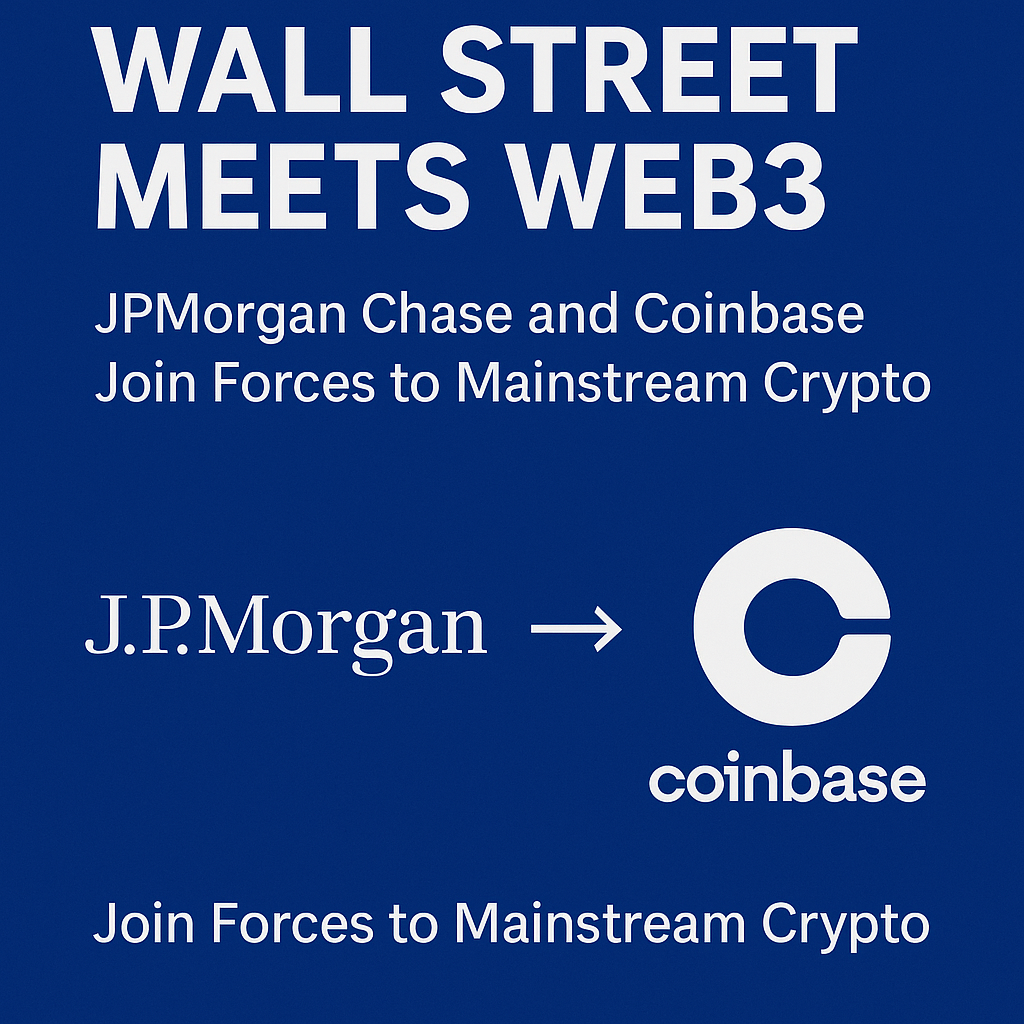In a move that could redefine how Americans access digital assets, JPMorgan Chase and Coinbase have announced a strategic partnership aimed at making crypto purchases “easier than ever.” This isn’t just another corporate handshake — it’s a landmark convergence between traditional finance (TradFi) and digital finance (DeFi) that could fast-track crypto adoption across the U.S.
What’s the Deal?
The partnership, announced July 30, will integrate Coinbase’s digital asset infrastructure with JPMorgan Chase’s massive consumer banking network. In simple terms: customers will soon be able to buy crypto directly from their Chase accounts, using familiar banking rails — without jumping through third-party platforms or waiting days for transfers to settle.
According to the release, the collaboration focuses on:
- Instant crypto purchases using Chase checking or savings accounts
- Integrated fraud and identity protection
- Regulatory-compliant transaction flows
- Future support for recurring purchases and crypto rewards
Why This Matters
1. Crypto Goes Mainstream
This is no fringe experiment. JPMorgan Chase serves over 80 million customers. If even a small fraction engage with digital assets through this integration, it could dramatically scale the U.S. retail crypto market overnight.
2. Coinbase Gets a Lifeline
After a tough 2022–2023 — regulatory heat, plummeting volumes, and an SEC lawsuit — Coinbase gains a serious boost in trust and transaction volume. Partnering with one of the world’s most regulated banks helps legitimize its platform in the eyes of risk-averse consumers.
3. Washington Can’t Ignore This
JPMorgan CEO Jamie Dimon has long been skeptical of crypto, famously calling Bitcoin a “fraud” in 2017. This pivot suggests institutional attitudes are evolving — and may force regulators to accelerate clear guidelines for bank-crypto collaboration.
The Bigger Picture: TradFi + DeFi = RealFi?
The Chase–Coinbase partnership is part of a broader trend: financial incumbents aren’t fighting crypto anymore — they’re joining it.
- BlackRock is offering Bitcoin ETFs.
- Fidelity is offering ETH to retirement clients.
- Visa and Mastercard are building stablecoin pilots.
The lines between banks and blockchains are blurring — fast.
This new alliance could also unlock what analysts call “RealFi”: a fusion of real-world finance and decentralized tools that emphasizes usability, compliance, and performance — without sacrificing the self-custody and innovation that Web3 promised.
What Could Go Wrong?
While the partnership is promising, challenges remain:
- Privacy trade-offs: Will JPMorgan customers unknowingly sacrifice decentralization and anonymity?
- On-chain integration gaps: If users buy crypto but never interact with Web3 apps, does it defeat the purpose?
- Regulatory flip-flops: The U.S. crypto policy environment remains unstable. One bad ruling could chill innovation.
Final Take
This isn’t just about easier crypto buying. It’s a symbolic — and strategic — move that marks the institutionalization of crypto on U.S. soil. Coinbase gains access to millions of potential users. JPMorgan gains exposure to a rising asset class. Consumers get simplicity, and the crypto industry inches one step closer to the mainstream.
Wall Street and Web3 aren’t at war anymore. They’re signing peace deals.




